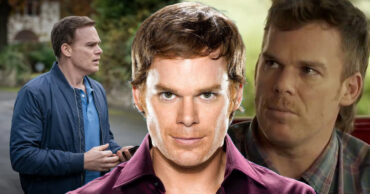When the trailer for Olivia Wilde‘s Don’t Worry Darling first aired, there was a huge buzz surrounding the film that many felt would be a strong Oscar contender. Originally, picked up from the Blacklist, Don’t Worry Darling was a hot property that easily attracted top names. The film is about Alice (Florence Pugh) and Jack (Harry Styles), who are living in the idealized community of Victory. Everything seems perfect in their world until the former grows suspicious about Frank. Alice is determined to get to the bottom of the truth, even if means she loses everything she calls paradise.
Olivia Wilde was fresh off a strong feature debut – Booksmart. With such a talented cast in front and behind the camera, Don’t Worry Darling seemed primed to be a top Oscar contender. The controversy surrounding the film gave it some extra buzz, but not the type of chatter that they were hoping for.
However, the controversial behind-the-scenes of Don’t Worry Darling has nothing to do with the quality of the film. It’s simply an average feature that you’ve seen dozens of times before. Don’t Worry Darling had complex themes regarding sexism, class, gender roles, and misogyny. Given that the original Black List script does an excellent job exploring these themes, it’s disappointing that the changes ultimately destroyed a captivating story.
Jack and Alice

The film doesn’t do a good enough job with the relationship between Jack and Alice. They’re blissfully in love in the simulation, even though in the real world, their marriage isn’t as happy as it seems. The problem with Jack and Alice is that the film is so busy trying to be sneaky and clever that we never dig deep into the issues going on with them. Why would Jack hook his wife up to a simulation machine that essentially erases her entire livelihood? The original script does an excellent job of answering this question.
Their marriage is deeply on the rocks. Jack is pissed that Alice has been taking birth control. He’s also frustrated living in a society controlled by women. This narrative is so much better because it gives his character more depth. In the film, Jack comes across as a dancing monkey who obeys everything Frank says or does. We don’t get to the root of Jack and Alice’s marriage until the third act. This is a mistake.
Understandably, Wilde wants to keep the mystery going, but within understanding the true nature of Jack and Alice’s relationship, the twist comes across as convoluted and illogical. Before the rewrite, the original script added a nuance about trust and gender roles that provided a fresh take on the subject.
Frank

On paper, Frank has the marks of a strong antagonist. The problem is, we don’t get much of a chance to truly understand his psyche. He’s a cult leader, but we don’t know why he created the Victory Project in the first place. Was he in the same boat as Jack where his marriage was on the rocks? It would certainly explain why Shelley (Gemma Chan) turned on him in the climax. That twist in itself didn’t make much sense because there weren’t enough details about Frank and their relationship as a whole.
Just like a protagonist, we as an audience have to see the multiple layers of a villain. As previously mentioned, Don’t Worry Darling goes out of it’s way to build its mysterious world that it crumbles when it finally reveals its hand. What’s worse is that a lot of the twists don’t particularly make much sense. We needed to understand Frank’s motivation. We also needed better context on how Shelley felt before the twist. More importantly, we needed to get to the bottom of why Frank would do such a nefarious thing that also impacts his wife.
Gender Roles and Misogyny

Gender roles and misogyny is a hot button topics in the modern age. The film had the perfect opportunity to explore this notion by offering commentary on the positives and negatives of marriage in the 1950’s. The men felt that the world was better when their wives were at home cooking and cleaning while they were the ones providing.
Why? With how much has changed in the last 70 years, Don’t Worry Darling should’ve expanded on the notion of these topics on both genders. Why women weren’t particularly happy with just being housewives. Or why men preferred a period where they were the providers. There’s a nice tidbit where Jack comes across as jealous that Alice gets to live a life of luxury being at home. There are so many layers to this story that it’s disappointing that the themes and social commentary of Don’t Worry Darling are lost in translation. The film touches on surface-level points that were better covered in films like The Stepford Wives.
 Follow Us
Follow Us





